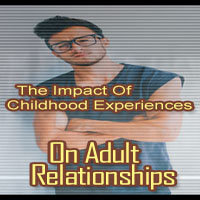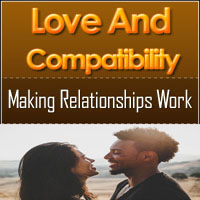
Experiences

Navigating The Digital Path To Romance

In a world increasingly defined by the digital age, the quest for love has undergone a significant transformation. The emergence of online dating and social networking platforms has not only changed the way we meet potential partners but has also redefined the dynamics of modern romance. This article delves into the concept of finding love online, exploring the reasons behind its popularity, and offering insights into the art of digital romance.
1. A Vast Pool Of Potential Partners
One of the primary reasons for the appeal of online dating is the vast pool of potential partners it offers. These platforms bring together people from various backgrounds, cultures, and geographic locations, providing individuals with a multitude of options when seeking romantic connections.
2. Compatibility And Shared Interests
Online dating services often use advanced algorithms to match individuals based on compatibility. This focus on compatibility enhances the chances of forming connections with people who share similar interests, values, and life goals.
3. Convenience And Accessibility
The convenience and accessibility of online dating cannot be overstated. In a fast-paced world where time is of the essence, these platforms offer the advantage of finding love without geographical limitations. The process can be tailored to suit individual schedules and preferences.
4. Shifting Social Norms
The stigma once associated with online dating has largely faded. In today's society, meeting potential partners through online platforms is viewed as a legitimate and practical way to find love. The shifting social norms have contributed to the widespread acceptance of digital romance.
5. Building Emotional Bonds
Online dating encourages individuals to focus on building emotional connections before physical ones. This emphasis on emotional intimacy can result in relationships that are rooted in understanding, shared values, and common interests, contributing to more stable and enduring connections.
6. Overcoming Geographical Barriers
Long-distance relationships, which were once challenging to maintain, have become more manageable with online tools and video communication. These technologies enable couples separated by vast distances to maintain their connections and deepen their relationships.
7. Virtual Dating Experiences
In the age of digital romance, virtual dating experiences have become increasingly common. Video calls and virtual dates allow individuals to connect in a more personal way, even when they can't meet in person. These virtual encounters serve as initial meetings or as a means of maintaining connections in long-distance relationships.
8. The Future Of Romance
Online dating has fundamentally transformed the landscape of love and continues to evolve. As technology advances, the role of online platforms in the formation of romantic connections is likely to expand, bringing people together in innovative ways.
Finding love online has emerged as a powerful and legitimate avenue for those seeking romantic connections. The appeal of a vast dating pool, compatibility algorithms, convenience, and the changing social norms have contributed to the rise of digital romance. These platforms have opened new doors to emotional connections and the opportunity to transcend geographical barriers. While online dating is not without its challenges, it remains a testament to the adaptability of human connection in a digitally-driven world, where shared values, interests, and goals remain at the heart of forming lasting and meaningful relationships.
A Changing Landscape
 Yet, as society progresses and embraces diversity, the views on age-gap relationships have evolved. One of the driving factors behind this shift is the recognition that love is complex and cannot be neatly defined by age. People enter into romantic partnerships based on a multitude of factors, such as shared values, emotional connection, and compatibility, not solely age-related considerations.
Yet, as society progresses and embraces diversity, the views on age-gap relationships have evolved. One of the driving factors behind this shift is the recognition that love is complex and cannot be neatly defined by age. People enter into romantic partnerships based on a multitude of factors, such as shared values, emotional connection, and compatibility, not solely age-related considerations.
Media and popular culture have also played a role in normalizing age-gap relationships. High-profile celebrity couples, such as Harrison Ford and Calista Flockhart or Catherine Zeta-Jones and Michael Douglas, have not only brought age-gap relationships into the public eye but have also presented them as genuine and loving unions. These positive representations in the media have helped to reduce some of the stigma surrounding these relationships.
In addition, changes in societal norms have influenced the growing acceptance of age-gap relationships. As gender roles and expectations evolve, more individuals are focusing on building connections and partnerships that fulfill them emotionally and intellectually.










The Joys And Challenges
 Significant age gaps in relationships have been a topic of fascination, speculation, and sometimes controversy for generations. These unions, often referred to as May-December relationships, challenge societal norms and raise a myriad of questions. While age is just a number, significant age differences can bring both unique benefits and challenges to a romantic partnership.
Significant age gaps in relationships have been a topic of fascination, speculation, and sometimes controversy for generations. These unions, often referred to as May-December relationships, challenge societal norms and raise a myriad of questions. While age is just a number, significant age differences can bring both unique benefits and challenges to a romantic partnership.
One of the most significant advantages of relationships with significant age gaps is the wealth of experience that the older partner can offer. Their life journey is often filled with wisdom, life lessons, and a deeper understanding of the world. This reservoir of knowledge can provide invaluable guidance and support to the younger partner, aiding them in navigating the complexities of life.
In turn, the younger partner can infuse the relationship with fresh perspectives, energy, and a modern outlook on life. This dynamic can create a harmonious balance, fostering personal growth and broadening the horizons of both partners. Their differences can be complementary, creating a symbiotic relationship that can be deeply enriching.
However, significant age gaps can also present challenges. These may include differing life stages and goals. For instance, the older partner may be nearing retirement while the younger one is just beginning their career. These differences can lead to varying priorities, which need to be addressed through open communication and compromise.
Society's perceptions and prejudices can add another layer of complexity. Age-gap relationships are sometimes met with skepticism, with individuals from older generations often raising questions about the motives of the younger partner. It's essential for the couple to have a strong foundation of trust and confidence in their love to overcome these external judgments.
A Guide To Finding Love Again
 Self-Reflection: Before diving back into the dating pool, take some time for self-reflection. Consider what you've learned from past relationships, what you're looking for in a partner, and what you've discovered about yourself during your time away from dating. This self-awareness can guide your choices and help you avoid repeating past mistakes.
Self-Reflection: Before diving back into the dating pool, take some time for self-reflection. Consider what you've learned from past relationships, what you're looking for in a partner, and what you've discovered about yourself during your time away from dating. This self-awareness can guide your choices and help you avoid repeating past mistakes.
Set Realistic Expectations: It's crucial to have realistic expectations. Understand that the dating landscape may have changed since you were last active. People's preferences and communication methods evolve. Be open to new experiences and adapt to the current dating norms.
Online Dating: Online dating has become a prominent way to meet potential partners. It offers convenience and a wide pool of potential matches. Take time to create an honest and appealing profile, and choose reputable dating apps or websites that suit your preferences.
Open Communication: Effective communication is key to successful dating. Be open and honest with your potential partners about your dating goals, boundaries, and expectations.
Embracing Fresh Beginnings
 Reinventing Oneself
Reinventing Oneself
Starting over is an opportunity for reinvention. It allows us to shed old identities and embrace new ones. While it can be intimidating to break away from the familiar, it's essential to remember that reinventing oneself is a testament to resilience and adaptability. It's a chance to redefine who we are and what we stand for.
Setting New Goals
Starting over also invites us to set fresh goals and aspirations. It's an excellent time to reflect on what we truly want in life, what makes us happy, and what gives our lives purpose. By establishing new objectives, we can reignite our motivation and work towards a more fulfilling and meaningful future.
Learning From Past Experiences
A crucial aspect of starting over is learning from past experiences. Mistakes and setbacks are part of everyone's journey. Instead of dwelling on them, use them as valuable lessons that guide your new beginning. By acknowledging your past, you can make more informed choices and avoid repeating previous errors.
Building Resilience
Starting over requires a great deal of resilience. The process can be challenging, as we often encounter obstacles, uncertainties, and fear. Building resilience means developing the inner strength to face these challenges with determination and adaptability. It's about bouncing back from adversity and using it as a stepping stone towards personal growth.
Embracing Change
Change is a constant in life, and starting over is a testament to our ability to adapt to it. While change can be unsettling, it's also an opportunity for growth. Embrace it with an open heart and a willingness to explore the unknown.
Building Stronger Bonds
 2. Open And Honest Communication
2. Open And Honest Communication
Honesty is the bedrock of any successful relationship, and it becomes even more critical when dealing with mental health issues. Be open about your challenges with your partner when you feel comfortable. Sharing your experiences, needs, and boundaries creates understanding and empathy.
3. Setting Boundaries
Setting clear and healthy boundaries is vital. Understand your own limits and communicate them to your partner. Respect your partner's boundaries as well. This paves the way for a balanced and respectful relationship.
4. Seeking Professional Help
If your mental health issues are significantly impacting your well-being or your relationship, consider seeking professional help. Therapy or counseling can provide you with strategies to cope with challenges and improve your mental health.
5. Self-Care And Support Network
Prioritize self-care by maintaining healthy routines, engaging in physical activity, and practicing relaxation techniques. Build a support network of friends and family who can provide emotional support when needed.
6. Dealing With Rejection And Setbacks
Not every date or relationship will result in a lasting connection, and rejection can be a part of the dating process. It's essential to develop resilience and not take rejection personally. Remember that finding the right partner is a journey.
7. Educate Your Partner
Educating your partner about your mental health issues can be empowering. Share information about your condition, its symptoms, and what they can do to offer support.